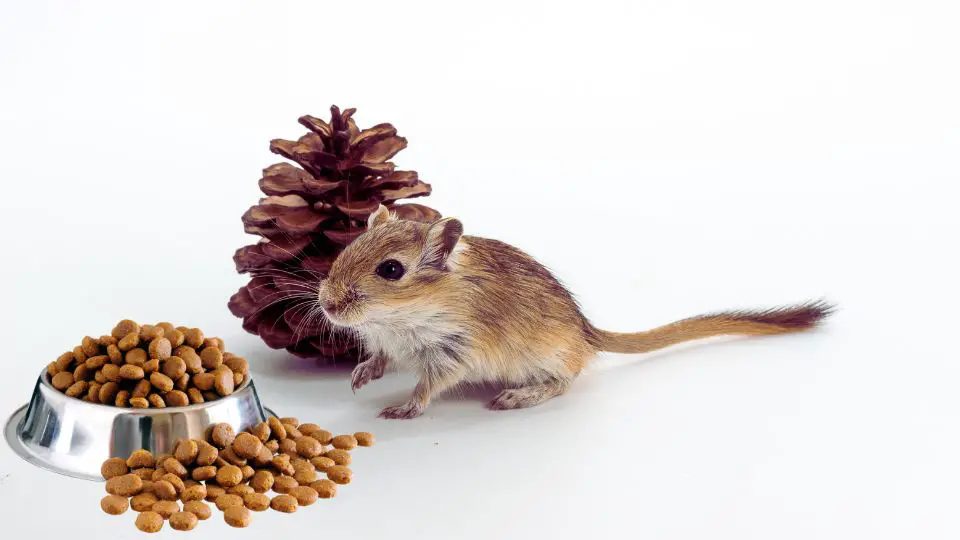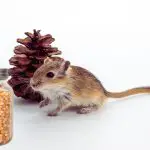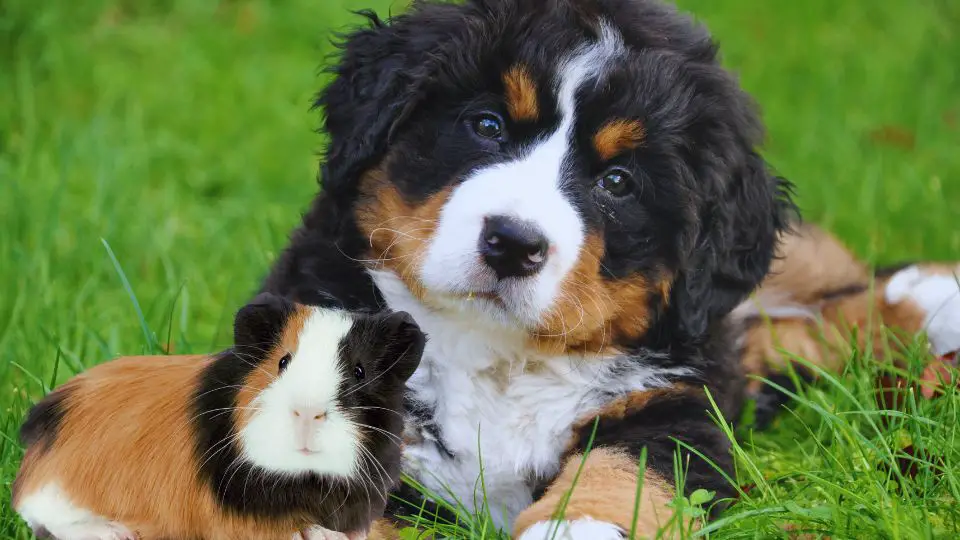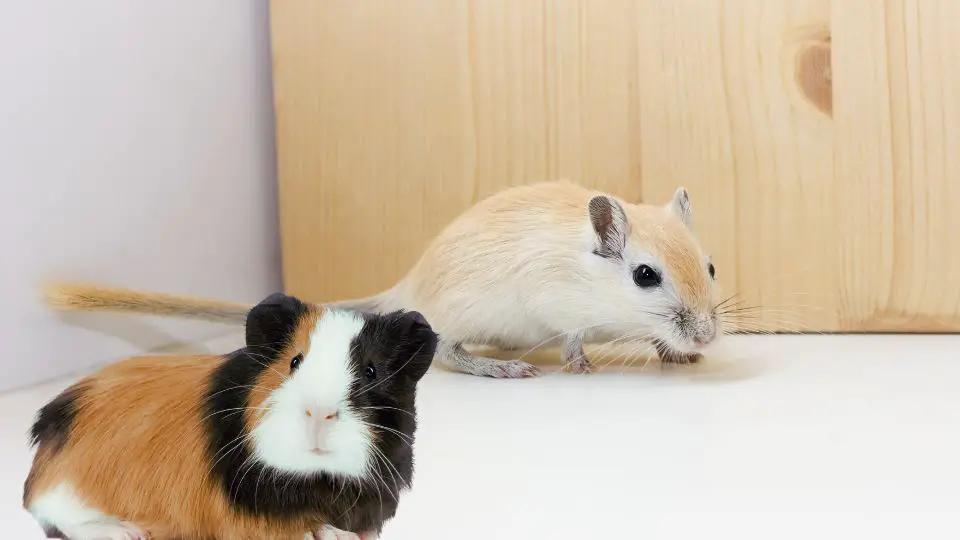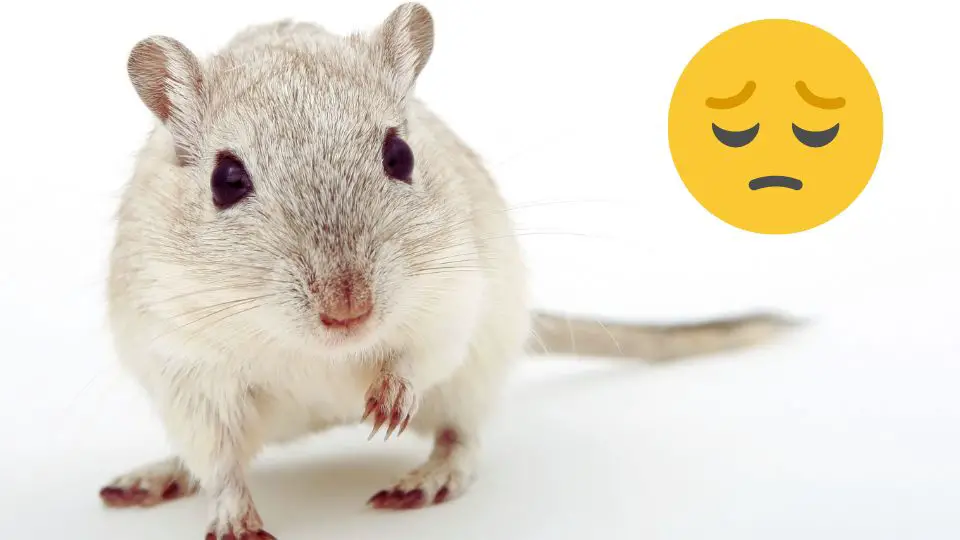As pet owners, we want to provide the best nutrition and treats for our furry friends. When it comes to gerbils, it’s essential to understand what foods are suitable for their unique dietary needs.
One common question that arises is whether gerbils can eat dog food, biscuits, or treats.
In this article, we will explore the suitability of these items for gerbils and provide insights into their nutritional considerations.
Gerbil Dietary Needs and Nutritional Requirements
In the wild, gerbils primarily feed on a variety of seeds, grains, and fresh vegetation. Their diet consists of a combination of grass seeds, herbaceous plants, roots, bulbs, and occasionally insects. This diverse diet provides them with the necessary nutrients to thrive in their natural habitat. It is important to replicate as closely as possible the nutritional components of their natural diet when feeding gerbils in captivity.
Gerbils require a balanced diet that provides them with the essential nutrients they need to maintain good health. Here are some key nutritional requirements for gerbils:
- Protein: Gerbils need a moderate amount of high-quality protein in their diet to support muscle development and overall growth.
- Fiber: A diet rich in fiber is essential for proper digestion and helps prevent gastrointestinal issues. It also supports dental health by promoting natural wear on their continuously growing teeth.
- Vitamins and Minerals: Gerbils require a variety of vitamins and minerals to support various bodily functions. These include vitamin A, vitamin D, calcium, phosphorus, and others.
- Water: Access to fresh, clean water is essential for gerbils to stay hydrated and maintain proper bodily functions.
Providing gerbils with a balanced diet is crucial for their overall health and longevity. A well-rounded diet helps prevent nutritional deficiencies and related health issues. Offering a variety of high-quality pellets formulated specifically for gerbils, along with fresh vegetables and occasional treats, can help ensure they receive the necessary nutrients.
Dog Food: Suitability for Gerbils
Gerbils are omnivores and can eat fresh foods like grains, seeds, nuts, leaves, fruits, and root vegetables. They should eat a gerbil food mix to meet their nutritional needs. Gerbils shouldn’t eat dog food because it’s made from meat. While gerbils are omnivores (they consume food of plant and animal origin), their digestive systems can’t easily process meat. Gerbils’ guts are designed for breaking down fibrous vegetables and grains. So it is not recommended to feed your gerbil dog food.
Gerbils have specific dietary requirements that are different from those of dogs. They need a diet that is lower in fat and protein but higher in complex carbohydrates and fiber. Additionally, gerbils require specific vitamins and minerals to support their overall health, including vitamin A, vitamin D, calcium, and phosphorus.
Dog food typically contains a combination of animal-based proteins, grains, vegetables, and other ingredients formulated to provide dogs with the necessary nutrients for their growth, development, and maintenance. The formulation and ingredients in dog food are specifically tailored to meet the dietary needs of dogs.
Feeding dog food as the primary diet for gerbils is not recommended due to several reasons:
- Nutritional Imbalance: Gerbils have different nutritional requirements compared to dogs. Dog food may lack specific nutrients that gerbils need for their optimal health, such as certain vitamins, minerals, and fiber.
- High Protein and Fat Content: Dog food is often formulated with higher levels of protein and fat to support the energy needs of dogs. Gerbils have different metabolic requirements, and excessive protein and fat intake can lead to health problems such as obesity and liver issues.
- Fiber Content: Gerbils require a diet high in fiber to support their digestive health. Dog food may not provide sufficient fiber content for gerbils, which can lead to gastrointestinal issues and improper digestion.
Dog Biscuits: Considerations for Gerbils
While gerbils may show interest in dog biscuits, it is best to avoid feeding them to gerbils due to potential risks associated with certain ingredients. High-sugar and high-salt dog biscuits should be avoided to prevent health issues.
Certain ingredients commonly found in dog biscuits may not be suitable for gerbils due to their specific dietary needs and potential health risks. Here are some considerations:
- High-Sugar Content: Dog biscuits may contain added sugars or sweeteners to enhance taste. Gerbils have a low tolerance for sugar and excessive consumption can lead to health issues, including obesity, dental problems, and disrupted gut flora.
- High-Salt Content: Some dog biscuits may have a high salt or sodium content. Gerbils have different sodium requirements compared to dogs, and excessive salt intake can negatively affect their health, including their cardiovascular and renal systems.
- Allergenic Ingredients: Dog biscuits may contain ingredients such as wheat, corn, or soy, which can be potential allergens for gerbils. These ingredients can cause digestive upset or allergic reactions in some individuals.
- Artificial Additives: Some dog biscuits may contain artificial flavors, colors, or preservatives. These additives may not be well-tolerated by gerbils and can potentially cause gastrointestinal disturbances or allergic reactions.
It is crucial to avoid offering high-sugar and high-salt dog biscuits to gerbils to ensure their health and well-being. Excessive sugar consumption can lead to obesity, diabetes, and dental problems. Likewise, a high-salt diet can strain their kidneys and cardiovascular system. Gerbils thrive on a diet that is low in sugar and salt, and providing them with appropriate treats specifically formulated for their nutritional needs is essential.
Dog Treats: Considerations for Gerbils
Again, while gerbils may show interest in dog treats, it is best to avoid feeding them to gerbils due to potential risks associated with certain ingredients. High-sugar and high-salt dog treats should be avoided to prevent health issues.
Dog treats come in various shapes, sizes, and flavors, and their ingredients can vary greatly depending on the brand and type. Common ingredients in dog treats may include grains, proteins, fats, fruits, and vegetables. It is crucial to examine these ingredients closely to determine their suitability for gerbils.
Certain ingredients commonly found in dog treats may not be suitable for gerbils due to their specific dietary needs and potential health risks. Here are some considerations:
- High-Sugar Content: Many dog treats contain added sugars or sweeteners to enhance taste and palatability. Gerbils have a low tolerance for sugar, and excessive consumption can lead to health issues, including obesity, diabetes, and dental problems.
- High-Salt Content: Some dog treats may have a high salt or sodium content. Gerbils have different sodium requirements compared to dogs, and excessive salt intake can strain their kidneys and cardiovascular system.
- Allergenic Ingredients: Dog treats may contain ingredients such as wheat, corn, soy, or certain meats that can be potential allergens for gerbils. These ingredients can cause digestive upset or allergic reactions in some individuals.
- Artificial Additives: Some dog treats may contain artificial flavors, colors, or preservatives. These additives may not be well-tolerated by gerbils and can potentially cause gastrointestinal disturbances or allergic reactions.
Safe and Suitable Alternatives for Gerbils
When it comes to treating our gerbil companions, it is essential to provide them with safe and suitable options that meet their unique dietary needs. While some human and pet treats may not be suitable for gerbils, there are specific treats available that are designed with their health and well-being in mind.
- Gerbil Treat Mix: Many pet stores offer commercially prepared gerbil treat mixes that contain a combination of seeds, grains, and dried fruits. These treats are often formulated to provide balanced nutrition and are a convenient option for offering variety in their diet.
- Fresh Fruits and Vegetables: Gerbils can enjoy a variety of fresh fruits and vegetables as occasional treats. Some suitable options include small pieces of apple, carrot, cucumber, and leafy greens like spinach or lettuce. Remember to introduce new foods gradually and in small quantities to prevent digestive upset.
- Dried Herbs and Flowers: Dried herbs and flowers such as chamomile, rose petals, or dandelion leaves can make delightful treats for gerbils. These natural options provide sensory stimulation and can be given in small amounts.
- Commercial Gerbil Treats: Several pet food companies produce treats specifically formulated for gerbils. These treats often come in different shapes and flavors, providing both nutrition and enjoyment for your gerbil. Always check the ingredients to ensure they are suitable for gerbils and free from harmful additives.
It is crucial to provide treats that are specifically formulated for gerbils to ensure their health and well-being. Gerbils have unique dietary requirements, and treats designed for them take into account their nutritional needs.
These treats are often made with high-quality ingredients, ensuring that they are safe and appropriate for gerbils’ digestive systems. Additionally, gerbil-specific treats are formulated to offer the right balance of nutrients and can contribute to their overall diet in a healthy manner.
Conclusion
In conclusion, while gerbils may show curiosity towards dog food, biscuits, or treats, it is important to understand that these items are not designed with gerbil nutritional requirements in mind. Gerbils have specific dietary needs that differ from dogs, and it is crucial to provide them with a diet that caters to their unique physiology.
Opting for commercially available gerbil food, treats specifically formulated for gerbils, and fresh, gerbil-safe fruits and vegetables will ensure that your gerbil receives the necessary nutrition for a healthy and balanced diet. Always consult with a veterinarian experienced in small animal care for specific dietary recommendations tailored to your gerbil’s needs. By making informed choices about your gerbil’s diet, you can promote their well-being and help them thrive.

